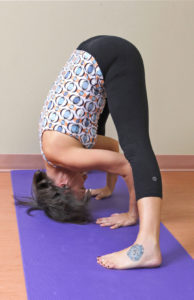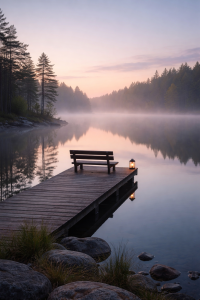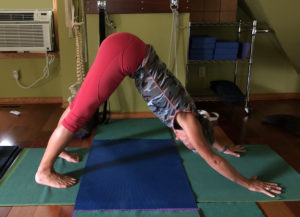In my definition of consciousness, consciousness is the same thing as life. What wisdom traditions also call spirit. Deepak Chopra
Consciousness has also been defined as the subjective quality of the experiential mind, or simply put, the mind’s awareness of itself and the world. Georg Wilhelm Friedrich Hegel, 19th century philosopher, stated “the history of the world is none other than the progress of the consciousness of freedom.” Implicit in Hegel’s statement is the recognition of freedom as a driving force in human development and evolution. Gratefully, in countries like Canada, physical, religious and political freedom is protected. Although Canadian (and other ‘westernized’) society may share in this broader sense of freedom, freedom from fear still eludes most people. I would venture to say, the next step to raising consciousness on humanity’s evolutionary ladder is the challenge of freedom from fear.
. . . we’re seeing a higher level of consciousness and many more opportunities
for people to challenge their present ways of thinking and move into a grander
and larger experience of who they really are. Neale Donald Walsch
Just as we use our rational, scientific abilities to evolve our intellect, we use our creative abilities to evolve our humanity. It is the integration of head (intellect, reason) and heart (intuition, emotion) that ultimately evolves our individual and collective consciousness. Canadian architect, Arthur Erickson, believed beauty manifests unexpectedly and consciousness evolves when we allow extraordinary insight to inspire us. The art of manifesting unexpected beauty is the act of creativity wherein extraordinary insight emerges intuitively. All of this occurs only if fear is not present.
So, how can we detour around our fears so we can create our own unexpected beauty? The answer is present moment awareness. Barbara de Angelis proffers, “only when your consciousness is totally focused on the moment you are in can you receive whatever gift, lesson or delight that moment has to offer.” Intuition comes to us when our mind is clear of regrets about the past and worries about the future (fear).
We are never more present to the moment than when we are in the act of creation. In my own creative journey, I discovered this fact — when I am inspired and involved in creating something new, there is no room for fear. The predominant emotion experienced during creative acts is joy — maybe excitement, never fear. Because human consciousness cannot hold two different thoughts (or feelings) at the same time, we can through our creative actions eradicate or at least lessen how often we are fearful.
If you do not consider yourself a creative person, now is the time to change this thinking. We are all creative people, however our ability to be creative, like any capacity, may be underutilized or dependent on less sophisticated methods. The more we can practice creativity, the more we will expand our individual and collective potential and consciousness.
Intuition inspires creative action. Creative action catapults us into new experiences that are the bedrock from which we evolve a new consciousness. It is no small ‘coincidence’ that intuitive skill is highly sought after in today’s corporate boardrooms, or that women — who more freely utilize their intuition — are filling these leadership roles. We are living in uncertain times. Our highly uncertain, complex and ambiguous environment cannot be understood by studying the past (using rational thought). Like it or not, we are forced to adapt to the current environment by relying on our intuition to guide us toward creating what we need most in the moment at hand. So now more than ever is the time to exercise your creative muscle.
Jeff DeGraff posits the following five levels of creativity, which we can all develop. Starting from the simplest to the most difficult to master, he reminds us that a creative life means you make it up as you go.
- Mimicry: Observation and repetition are the foundation of learning as is our ability to mimic another’s action and apply it to a different situation. Have you notice that most new inventions are copied from the natural world.
- Synthesis: Combining rational (familiar) and intuitive (unfamiliar) thinking, as in brainstorming, is a popular process for thinking outside the box in order to create something new.
- Metaphor: By using an analogy, such as a butterfly’s metamorphosis to describe organizational transformation, we take information from a known experience and use it to inform us about an unknown experience.
- Storytelling: Master storytellers present a coherent, meaningful and compelling tale, which in the world of organizational transformation has the capacity to inspire a collective into mobilizing in a new direction.
- Intuition: Distracting and relaxing the ever-babbling ‘monkey’ mind into a receptive state of silence allows ideas to flow easily to the surface of consciousness. When I am seeking inspiration, I rely on meditation to still my mind and awareness writing to make sense of what emerges.
Mastering creativity, like becoming a proficient golfer, takes discipline and practice. What one practice can you begin today to enhance your creativity and raise your consciousness?
The mind can assert anything and pretend it has proved it. My beliefs I test
on my body, on my intuitional consciousness, and when I get a response there,
then I accept. D. H. Lawrence
Find more tips and tools on expanding your creativity and consciousness in my book, Creating Space: the Practice of Transformation, Vol. 1 – Inspiration.





